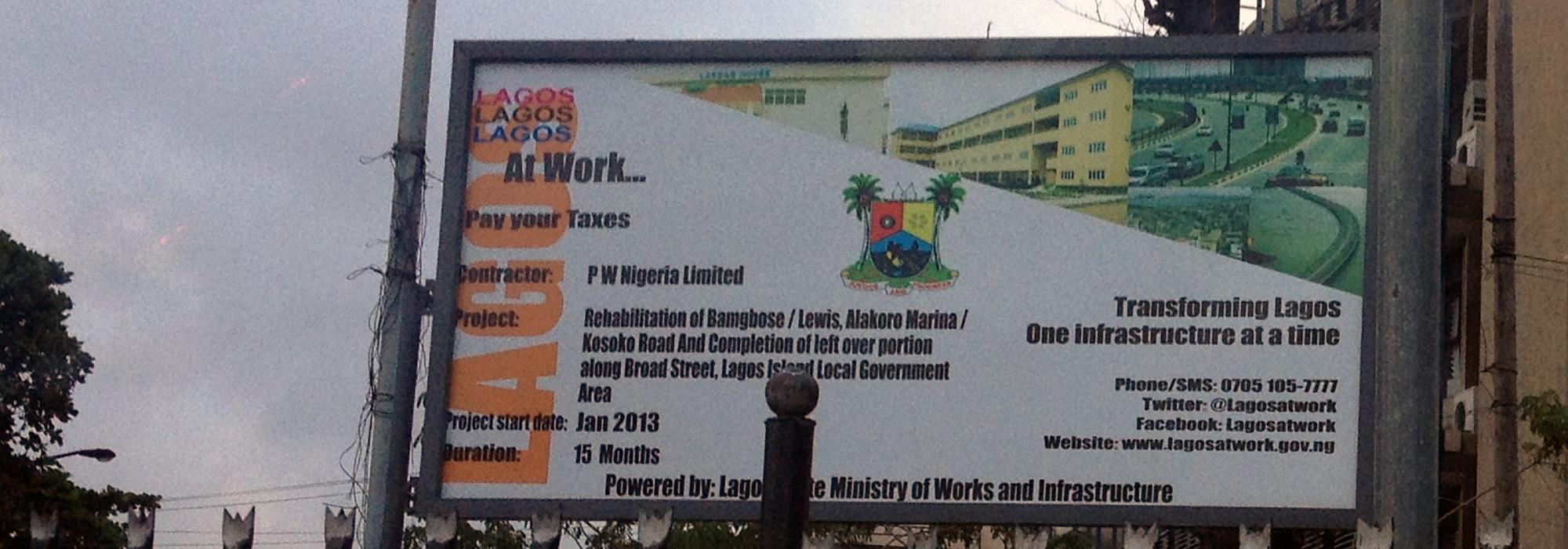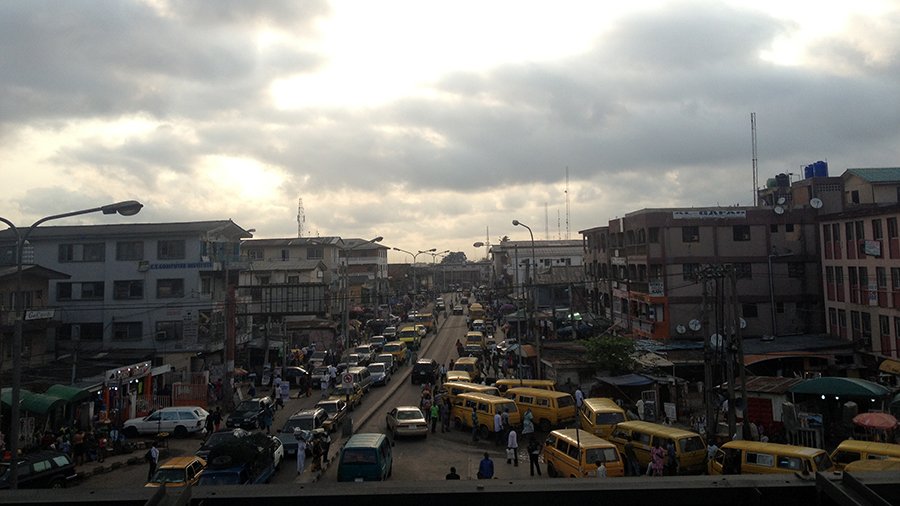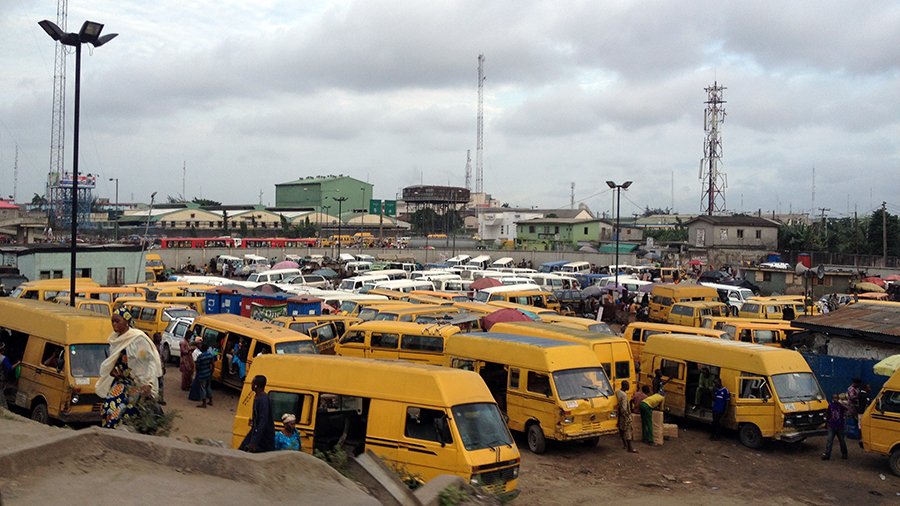
Report: thesis fieldwork in Lagos, Nigeria
Diane de Gramont
I am a Clarendon Scholar and a second-year MPhil candidate in Comparative Government at Merton. Thanks in part to a travel grant from Merton College, I was able to travel to Lagos, Nigeria for eight weeks in August-September 2013 to conduct field research for my thesis on governance reforms in the Lagos state government since the transition from military rule in 1999.
My research objectives were to examine how the Lagos state government succeeded in exponentially increasing its internal tax revenues, what progress it has made in delivering basic public services—with a particular focus on urban transportation—and whether greater reliance on taxes has made the government more responsive to citizens and increased citizen demands on government.

During my time in Lagos I conducted 82 interviews with state government officials, political activists, journalists, and representatives of private sector associations, non-governmental organizations, and international development agencies. I was also able to obtain state budget data from 2000 to the present and other state government statistics and household surveys. My interviews in Lagos were invaluable to my research as there is little secondary literature on this case.
In the area of taxation, for example, I was able to speak with senior officials in the internal revenue service and the ministries of finance and economic planning and budget. I learned about the stages of tax reform between 1999 and the present, the key challenges and opportunities to tax reform, and how important state officials felt improved public services were to their ability to increase tax compliance. Through interviews with representatives from the main business organizations and other members of civil society I gained a better understanding of how private businesses and citizens responded to increased tax collection, the importance of social organizations as intermediaries between the government and the general public, and the degree to which they feel the government has become more responsive to their needs. I also spoke with those who argued that the state government has not used increased tax revenues well to serve citizen needs.

I similarly documented reforms in the urban transport sector, interviewing representatives of most of the major state government agencies involved in different aspects of transportation—from road construction to traffic regulation to the development of new bus and rail public transit systems—as well as some bus operators and members of civil society. I learned about how transport reforms have evolved over time and how the state has combined very popular service delivery such as road improvements with more controversial changes to traffic laws and the regulation of existing informal transit operations.
As a result of my field research I now have substantial empirical data upon which to base my thesis and hope to trace the main factors that motivated and enabled governance change in Lagos, with implications for how similar reforms might occur in other developing country contexts.